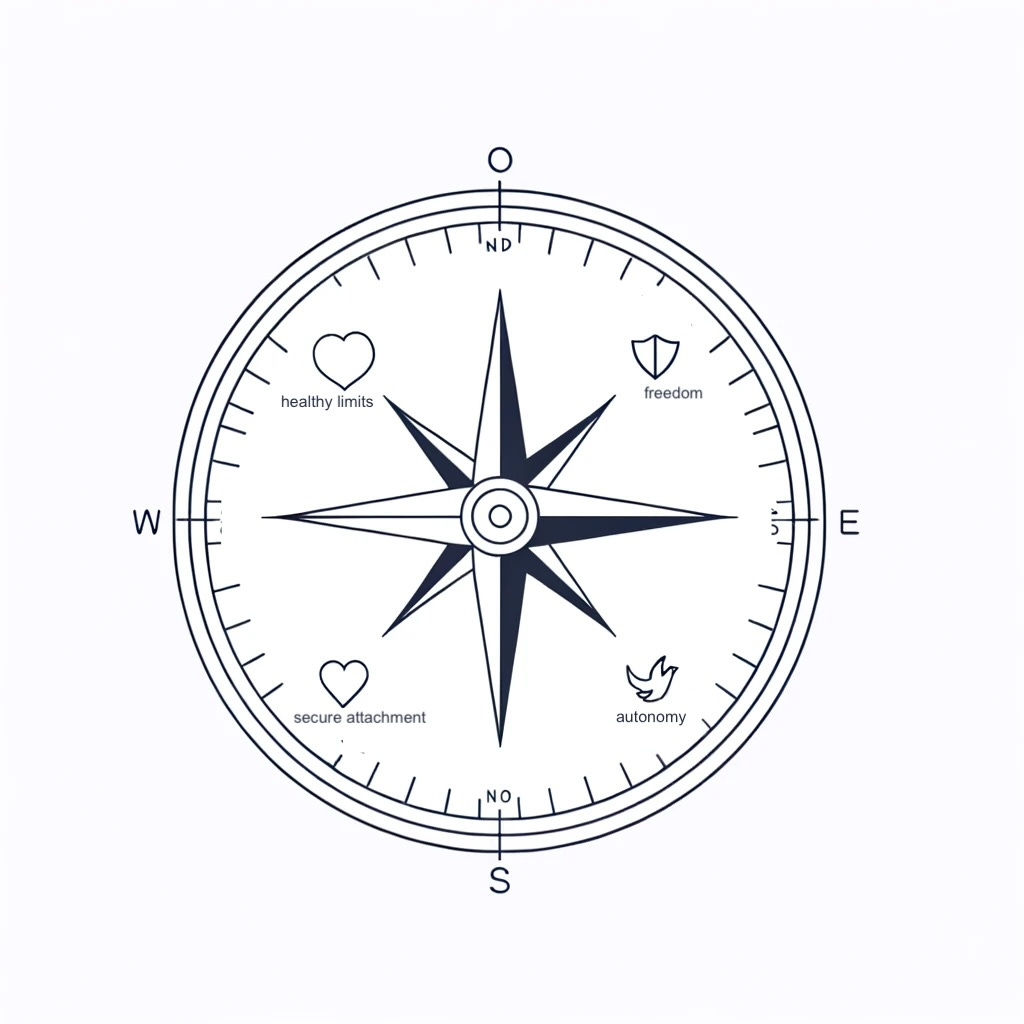Letting Go of Your 'Skinny Identity': A Challenge in Eating Disorder Recovery
As an eating disorder therapist, I frequently encounter a dilemma voiced by my clients: “I want to recover but I also want to lose the weight. Do I have to give up being skinny to work with you? I don’t want to accept myself in this body. I cannot be happy in this body.”
Each time, I find myself wondering the deeper meaning of these words. If I were to tell them “You have to give that up. You have to be okay with not being skinny”, I wonder what they think I am asking of them. What does giving up on being skinny entail for the person sitting across from me?
They often fear it means relinquishing not just a desired physical appearance, but a whole identity wrapped up in being skinny - their “skinny identity” or their “ideal body”. However, is the essence of their concern truly the way their body looks?
The Skinny Identity Beyond Numbers
It’s crucial to look beyond the superficial allure of the word ‘skinny’. This identity can be associated with any weight (though it’s usually low weight compared to your natural set point weight) and it is different for everybody. Skinny identity doesn’t refer only to the ideal body you have in your head but the persona you envision embodying once your goal weight is reached.
For some, ‘skinny identity’ will resonate more due to having experienced being in that body. This identity encapsulates traits they admire in themselves—control, discipline, strength of will, a sense of security—traits they feel were most pronounced during this period of their lives (this perspective frequently glosses over the harsh realities and sacrifices endured to maintain such an identity).
For others, “ideal body” will resonate more as it’s the body they want to reach one day. It hasn’t become an identity just yet but it’s an ideal. The idealized version of them. The person they hope to be one day. This brings us to a vital self-reflection:
What do I anticipate happening once I reach my ‘ideal’ weight?
In what ways do I believe my life will transform when I’m skinnier?
How will my life be different in a smaller body?
By moving away from the thinness ideal, what do I feel like I’m losing/giving up?
What distinguishes those in smaller bodies? (Do they appear more joyful, more loved, more sociable, etc.?)
Skinny Identity as a Protective Shield
At the depths of my eating disorder, I would tell myself “If people don’t like me, at least I will be thin”. This sentence alone uncovers the essence of my skinny identity, why I was so scared to let go of it. I believed that if I were to stick to recovery, it would mean that I wouldn’t have a safety net to fall back onto.
Yet, is being in a smaller body genuinely a safeguard? Does it truly protect us from hurt or societal rejection?
No, it doesn’t. Being thin is not an armor that makes you invincible and untouchable. If it were, individuals in smaller bodies would be immune to distress and negative emotions (Just the thought of that sounds absurd!).
Your Skinny Identity Signifies Unmet Emotional Needs
It’s all about what your skinny identity signifies for you. It’s much more than a number on the scale. It’s a vision, an idea to hold onto when you are feeling lost - a representation of something you have been missing, an unfulfilled emotional need. Somewhere along the way, an experience has taught you that you could get that need met by making yourself smaller. But is that assumption accurate?
Thinness doesn’t equate to love, joy, respect, acceptance, power, or beauty.
I know, I know. Society has convinced us that we cannot be happy unless we are skinny. That we can never be accepted or respected until we make ourselves as small as possible. It’s true that thin privilege is a thing, there is no denying that. It’s heartbreaking to know that there are people out there who treat others differently because of their size. So, I get it when people are scared to give up on their skinny identity. Nobody wants the give up the possibility of being happy, worthy, lovable, respected, seen… Yet, recovery doesn't imply sacrificing the quest for emotional fulfillment.
Recovery is about recognizing the association between a smaller body and the fulfillment of emotional needs is a fallacy. I'm not advocating for relinquishing the pursuit of emotional fulfillment; rather, I encourage learning to meet these needs within your current body. Because you deserve to get your needs met and this has nothing to do with your weight. You deserve to live a life where you feel confident, happy, connected and safe. You don’t have to earn this by making yourself smaller. You automatically have it by just existing.
Reframing Skinny Identity: A Compass for Emotional Needs
By reinterpreting our pursuit of thinness, we can identify and address our true emotional needs without the condition of changing our physical appearance.
What if we viewed skinny identity not as a goal to be achieved but as a compass pointing toward our true emotional needs?
Let me explain. The sentence “If people don’t like me, at least I will be thin” captures the essence of my skinny identity. If I had used it as a compass many years ago, it would point me in the direction of the need for connection and acceptance as my authentic self. It might have revealed my underlying feelings of not feeling accepted by certain close individuals, highlighting my craving for more reassurance within my personal relationships and friendships. Shrinking oneself is not a shortcut to forging meaningful relationships. Instead, the focus should be on reaching out for connection, embracing the understanding that seeking universal approval is neither necessary nor indicative of my self-worth. It's about prioritizing genuine relationships over superficial acceptance.
Let’s take another example “I am not good at anything, but when I lose the weight, at least I’ll be the best at being the thinnest.”
The compass points to the need of competence and a distinct sense of identity - where we seek to be recognized for our skills or passions. This is where the journey of self-exploration becomes pivotal. If you find yourself at a loss for what these could be, you can try out different things every weekend: enroll in a painting workshop, pull up recipes on Youtube and start baking, or sign up for a knitting class. These experiences might not only introduce you to new joys but also reveal hidden talents. Fulfilling your need for competence and finding your unique identity doesn’t need to be contingent upon attaining a certain physique.
Embracing Authenticity in Recovery
The essence of recovery lies in embracing who you are, fostering healthy and secure attachment to people who support you and meet your needs is what makes you feel loved, happy, respected, accepted, competent and beautiful. These are things you can have in your current body. Committing to recovery lays the groundwork for unveiling your authentic self. You’ll reconnect with aspects of yourself that have been overlooked because of your eating disorder. You will create a safe space for your true self to come out.
Wondering where to begin? Visualize your ideal self—not just in form, but in spirit. How would this version of you navigate the world? Begin to embrace these changes now, within your current self, and witness the transformative power of authenticity.
🌱I give online and in-person (Leiden, the Netherlands) therapy and counseling sessions for eating disorders, body image struggles and more.
🌱Send me a message via realisticbodytherapist.com





But what if ...
it is really about the weight itself?
I'm doing a sport, where being a lot thinner than my body is made for, brings a lot of advantages.
People wouldn't like to train with me if I was heavier. They would still like me, no question here, but Training partners would be rare and that hurts. And my whole Social circle evolves around this sport.
And on my case it is not about dreaming of a body. I've got a body as well suited for my sport as it will get. I know how awful it Fels and any "improvement" would make me feel more exhausted.
But I don't want to give up all my people and the joy of my Sports which is such a central Party in my life.
This is a really great post about the challenges on the topic of weight and weight loss, and of course recovery too. It’s about food and weight, but as you so beautifully write, it’s also about so much more than that.